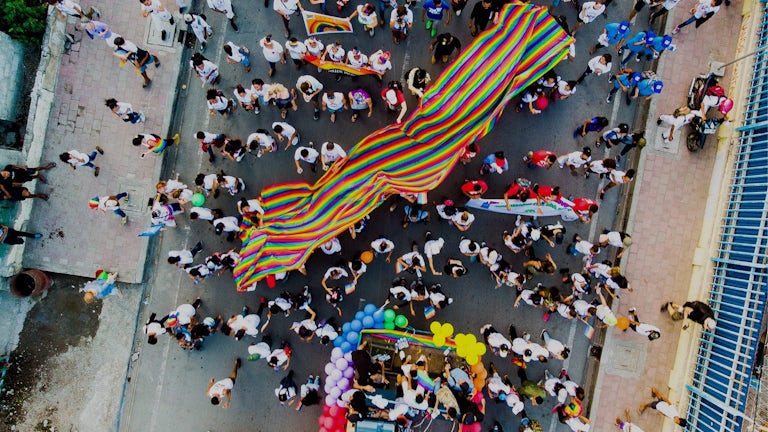Shopping Bag (0)
Shopping bag is empty


It’s Pride month – so cue the onslaught of corporate sponsorship. Of course, representation matters. But every year, communities worry that the real issues are being masked by a rainbow swirl of LGBTQ branding. We’re not here for woke washing, the phenomenon that sees brands use social issues to show their credibility but don’t make changes deeper in their working culture or supply chains.
Audiences can spot lifeless gestures by brands that jump on an LGBTQA* cause only to leave it for dust a few weeks later (think: the M&S ‘LGBT Sandwich’). But sometimes, it works. When Netflix sent their Orange is the New Black barge down an Amsterdam canal, they focused on a fan favourite that champions LGBT visibility in the show.
We’ve even come around to Gillette’s recent interventions. After years of deploying a narrow version of masculinity, they are now part of an evolving definition of male identity. Gillette should comment because of, and not in spite of, its propagation of a narrow view of the male experience. Their latest ad was powerful, poignant and (crucially) centred on the experiences of trans activist Samson Bonkeabantu Brown.
But taking a stance for LGBTQ and gender rights should mean more than putting out content or sponsoring an event. Starbucks offer extended healthcare benefits for their transgender workers. Gap and Levi issued a joint statement against the Indiana law which could protect business owners who refuse service to LGBT customers. And companies like IKEA, Paypal, Microsoft, and Uber are making commitments in-house, scoring a perfect 100 in the Corporate Equality Index, which measures workplace parity for LGBT employees.
So if brands truly want to earn the right to comment, rather than jump on the woke-washing bandwagon, let’s hope they’re prepared to take action beyond supporting LGBTQA* for one month only.